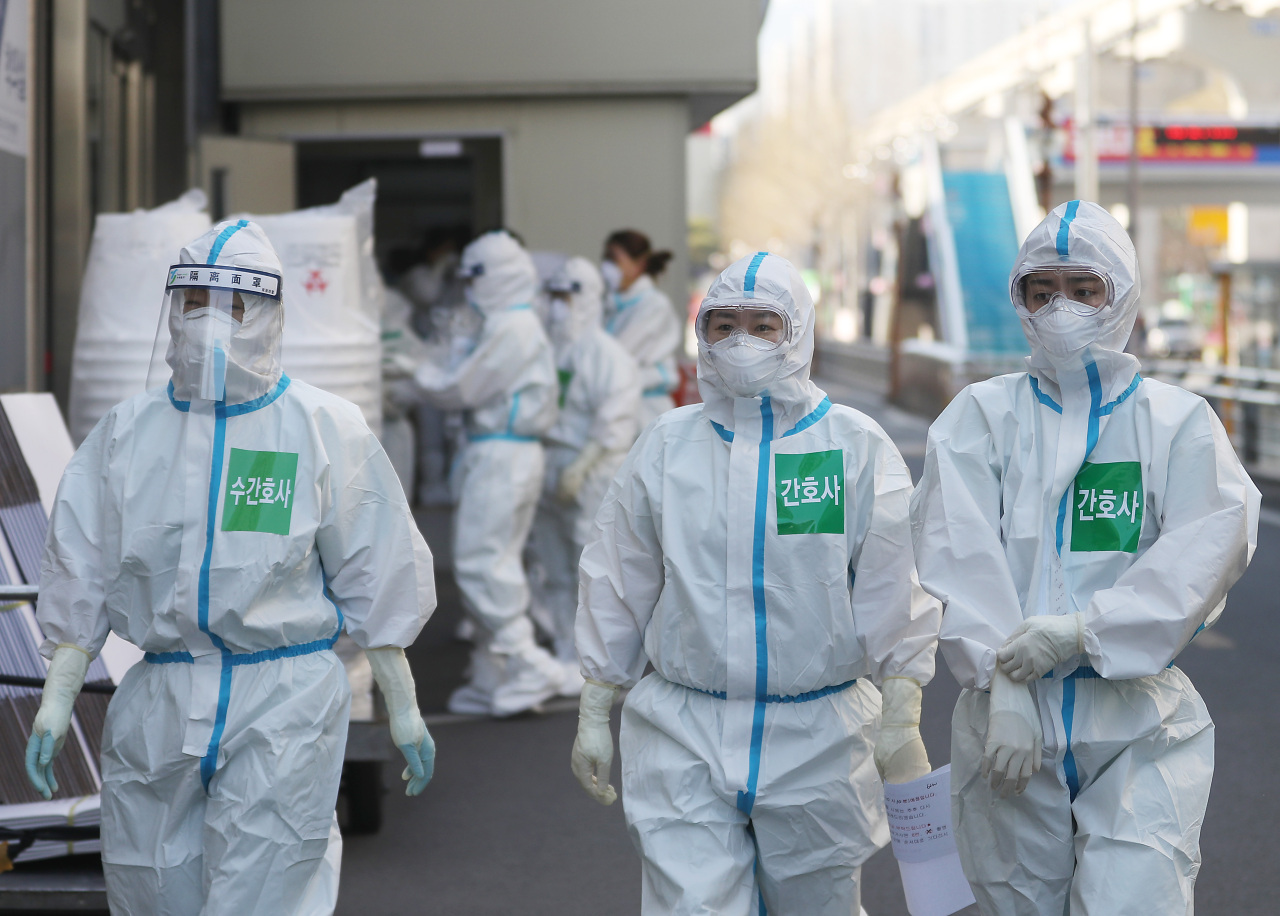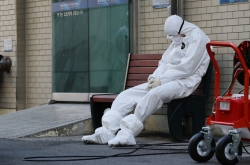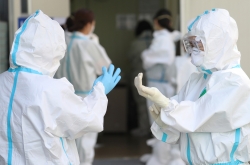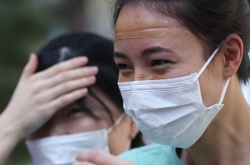South Korea reported 47 new cases of the novel coronavirus on Monday, the lowest number since late February. Still, the trend toward more new cases in the capital area has authorities on edge.
As of Monday at 12:01 a.m., the total number of COVID-19 infections to date stood at 10,284, according to the Korea Centers for Disease Control and Prevention.
This is the first time infections reported in a single day have fallen below 50 since late February. At its peak on Feb. 29, the country counted 909 new cases in 24 hours.
Three more people lost their lives to the disease, pushing the number of deaths to 186, according to the KCDC.
Of the new patients, 20 came from the capital area -- 11 in Seoul due to overseas travel and eight in Gyeonggi Province stemming from a cluster at Uijeongbu St. Mary’s Hospital.
Prime Minister Chung Sye-kyun urged the public to continue with high-level physical distancing, saying the country could see an explosion of cases at any time, as some Western countries are seeing now.
“It was inevitable for us to extend high-level social distancing because it was clear that the virus will spread further if we let our guard down,” Chung said during a meeting on COVID-19 in Seoul.
“I do not want to imagine this, but if the virus spreads to a large number of people in the capital region we could face the situation that many countries in the West are experiencing.”
Korea has extended its social distancing campaign until April 19, closing schools and gyms, among other frequently used facilities, in hopes of cutting in half the average number of new infections per day, to fewer than 50.
Despite warnings from health experts highlighting the importance of staying home, crowds were seen outdoors over the weekend as the weather warmed up and spring flowers blossomed, spurring health concerns that a lax attitude to physical distancing could cause an increase in infections.
According to the Central Disaster and Safety Countermeasures Headquarters, people’s overall movements were roughly 20 percent more active last weekend than in late February, when the number of COVID-19 patients in Korea‘s epicenter of the virus -- Daegu and the surrounding region -- was beginning to surge.
Health authorities advise people to keep at least 2 meters away from each other as part of social distancing.
Chung referred to physical distancing as the “most effective preventative measure,” saying it not only protects a person, but also shows consideration for others.
Health authorities said Monday that they were investigating the growing number of people rediagnosed with COVID-19 after recovery.
“We have identified 41 repeat cases, including 18 in Daegu and seven in North Gyeongsang Province. An epidemiological survey is underway to see if their testing positive for the virus is due to virus reinfection or revival,” said KCDC Director-General Jeong Eun-kyeong during a briefing Monday.
Health authorities are leaning toward virus reactivation as a probable cause for patients testing positive for the virus a second time shortly after being discharged upon a full recovery.
Although the average mortality rate here for COVID-19 stands at 1.8 percent, the figure jumps to 7.5 percent for patients in their 70s and nearly 20 percent among those in their 80s.
Another 135 people were discharged from isolation after making a full recovery, putting the number of recoveries at 6,598, according to the KCDC.
The number of COVID-19 patients currently under treatment declined by 91 people to 3,500, the agency added.
By Kim Bo-gyung (
lisakim425@heraldcorp.com)












